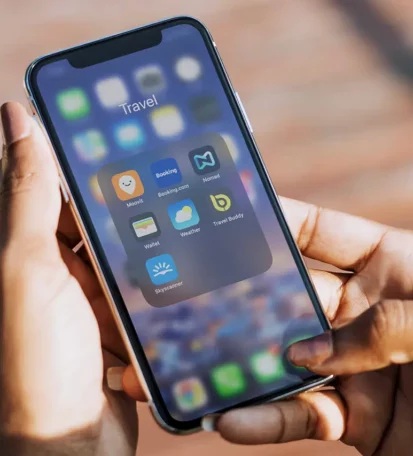Business Travel Guide
How to Manage Hotel Incidentals On Corporate Cards + 7 Easy Tips

Managing hotel incidentals on corporate cards can be a complex task for businesses with frequent travelers. These additional charges, such as room service or minibar use, often catch companies off-guard and can lead to unexpected expenses. Corporate cards can simplify the management of hotel incidentals by providing a dedicated payment method and streamlining expense tracking.
When employees travel for work, hotels typically require a credit card at check-in to cover potential incidental charges. Using personal cards for this purpose can burden employees and complicate reimbursement processes. Corporate cards offer a solution by separating business expenses from personal finances and providing better visibility into travel-related spending.
Key Takeaways
- Corporate cards streamline incidental expense management and improve tracking
- Clear policies and employee education are crucial for controlling incidental costs
- Technology solutions can provide real-time visibility into travel-related spending
What are Hotel Incidentals?
Hotel incidentals encompass additional charges beyond the basic room rate. These extra costs can significantly impact corporate travel budgets if not managed properly. They typically include services and amenities used during your stay.
Common types of hotel incidentals are:
- Room service
- Minibar consumption
- Pay-per-view movies
- Phone calls
- Spa treatments
- Laundry services
- Parking fees
Some hotels may also consider resort fees or wifi charges as incidentals. It’s crucial to understand what your company’s travel policy covers to avoid unexpected expenses.
3 Main Charging Policies for Incidentals
Hotels often require a deposit or hold on your credit card at check-in to cover potential incidental charges. This amount can vary widely, ranging from $25 to $150 per night, depending on the hotel’s policies and your room rate.
You may encounter different charging methods:
- Pre-authorization hold
- Daily charges
- End-of-stay billing
Some hotels track incidental spending by asking for your room number when using services. It’s important to review your bill carefully at checkout to ensure all charges are accurate and comply with your company’s travel policy.
Benefits of Using Corporate Cards
Corporate cards simplify expense management for hotel incidentals. You can easily track and categorize charges for room service, minibar usage, and other additional services.
This streamlined process reduces administrative burdens and improves cost control.
Corporate cards often come with perks like travel insurance and rewards points. These benefits can offset travel costs and provide added value to your company.
Some cards offer higher rewards for hotel-related expenses, maximizing your return on business travel spending.
Using a corporate card for incidentals eliminates the need for employees to use personal funds. This separation of personal and business expenses simplifies reimbursement processes and reduces financial stress on employees.
Risks of Using Corporate Cards
Overspending is a potential risk when using corporate cards for incidentals. Without proper policies and oversight, employees may be tempted to indulge in unnecessary expenses.
Implementing clear guidelines and spending limits can help mitigate this risk.
Credit card holds for incidentals can temporarily reduce available credit. This may impact your company’s financial flexibility, especially for smaller businesses or those with lower credit limits.
Privacy concerns may arise when employees use corporate cards for personal expenses during business trips. Establish clear policies on acceptable use of corporate cards to maintain proper separation of business and personal charges.
Fraud and misuse are potential risks with corporate cards. Implement robust security measures and regularly monitor card activity to detect and prevent unauthorized transactions.
7 Hotel Incidentals Management Strategies
Effective management of hotel incidentals on corporate cards requires a multi-faceted approach. By implementing targeted strategies, companies can maintain control over expenses and ensure compliance with travel policies.
1. Setup Spending Limits
Corporate cards can be configured with preset spending limits for incidentals. This proactive measure helps prevent excessive charges and unauthorized purchases.
Set daily or per-trip limits based on company policy and travel destination. Consider different tiers for various employee levels or roles.
Implement real-time alerts for when an employee approaches or exceeds their limit. This allows for immediate intervention if necessary.
Review and adjust limits periodically to ensure they remain appropriate and align with current market rates for hotel services.
2. Use Expense Management Tools
Leverage digital travel and expense management companies to streamline the tracking and reporting of incidental expenses. These platforms often integrate directly with corporate card systems.
Look for features like receipt capture, automated categorization, and policy violation flags. This reduces manual data entry and improves accuracy.
Generate regular reports to analyze spending patterns and identify areas for potential cost savings.
Consider tools that offer mobile apps, allowing employees to manage expenses on-the-go and submit reports promptly.
3. Educate Employees on Policies
Develop clear guidelines on what constitutes acceptable incidental expenses and communicate these effectively to all employees who travel.
Create an easily accessible travel policy document outlining approved incidentals and spending limits. Include examples of common scenarios.
Conduct regular training sessions to reinforce policies and address any questions or concerns. Use real-world examples to illustrate proper incidental management.
Encourage employees to review hotel folios carefully before check-out to identify and dispute any incorrect charges promptly.
Implement a system for employees to seek pre-approval for unusual or higher-cost incidentals when necessary.
4. Regular Review of Charges
Review your corporate card statements promptly after each business trip. Check for any unexpected hotel incidental charges and compare them against your receipts. Set up automated alerts for charges exceeding predetermined thresholds.
Create a spreadsheet to track incidental expenses across multiple trips. This helps identify spending patterns and potential areas for cost savings.
Utilize expense management software to streamline the review process. These tools can automatically categorize expenses and flag any unusual charges for further investigation.
Consider implementing a policy requiring employees to submit detailed itemized hotel bills along with their expense reports. This practice enhances transparency and simplifies the review process.
5. Dispute Resolution Process
Establish a clear procedure for disputing incorrect or unauthorized incidental charges. Train employees on how to identify and report discrepancies promptly.
Contact the hotel directly for minor disputes, such as minibar charges or in-room movie fees. Many issues can be resolved quickly with a simple phone call or email.
For more significant discrepancies, involve your corporate travel department or designated travel manager. They can leverage relationships with hotel chains to negotiate resolutions.
Document all communication related to disputed charges. Keep a record of dates, times, and the names of hotel staff or representatives you speak with.
If a dispute remains unresolved, consult your corporate card issuer about their chargeback process. Be prepared to provide supporting documentation for your claim.
6. Create a Clear Incidentals Policy
Start by defining what qualifies as an incidental expense. Include items like room service, minibar charges, and in-room entertainment. Specify spending limits for each category and outline the approval process for exceptions.
Clearly state which expenses are reimbursable and which are not. For example, you might cover reasonable meals but not alcoholic beverages. Provide guidance on using corporate cards for incidentals versus personal cards.
Include instructions for submitting expense reports and required documentation. Consider implementing a digital expense management system to streamline this process.
7. Reviewing and Updating Policies Regularly
Set a schedule for policy reviews, such as annually or bi-annually. This ensures your guidelines remain relevant and effective as business needs change.
Monitor industry trends and best practices in corporate travel management. Adjust your policy to reflect new technologies or services that may impact incidental expenses.
Analyze expense data to identify patterns or areas for improvement. Are certain types of incidentals consistently causing issues? Use this information to refine your policy.
Gather feedback from employees who travel frequently. Their insights can help you address real-world challenges and improve policy clarity.
Consider changes in company financial health or travel volume when updating policies. You may need to tighten or relax guidelines based on current circumstances.
FAQs
How can companies ensure proper tracking of incidental charges on corporate cards at hotels?
Companies can implement detailed expense reporting systems that require itemized receipts for all hotel charges. Setting up automated alerts for unusual or high-value transactions helps catch potential issues quickly.
Establishing clear guidelines on approved incidental expenses and communicating these to employees is crucial. Regular audits of corporate card statements can identify trends and areas for policy improvement.
What steps can employees take to avoid unnecessary incidental charges during hotel stays?
Employees should review hotel policies before check-in and decline automatic minibar access. It’s wise to bring personal items like toiletries to avoid purchasing overpriced alternatives from the hotel.
Opting out of daily housekeeping can reduce the temptation to use chargeable amenities. Employees should also contact the hotel’s front desk for clarification on any potential charges before using services.
What are some common examples of incidental fees charged by hotels?
Common incidental fees include room service, minibar usage, and pay-per-view movies. Parking fees, gym or spa access, and late check-out charges are also typical.
Some hotels charge for Wi-Fi, printing services, or in-room safe usage. Restocking fees for removing items from the minibar, even if not consumed, can surprise travelers.
Is it possible to find hotels that do not require an incidental deposit, and how?
Yes, it’s possible to find hotels that don’t require incidental deposits. Research budget-friendly options or extended-stay properties that often have more flexible policies.
Contacting hotels directly to inquire about their incidental policies can be effective. Loyalty program memberships or corporate agreements sometimes waive incidental deposit requirements.
What is the standard process for the refund of incidental charges after a hotel stay?
The standard refund process begins at check-out when the final bill is reviewed. Unused incidental deposits are typically released within 3-5 business days, depending on the hotel and your bank.
Keep your folio or itemized receipt for reference. If refunds are delayed, contact the hotel’s accounting department with your reservation details and the exact amount in question.
How are incidental charges handled when using a hotel’s digital check-in and room key system?
Digital check-in systems often require you to input a credit card for incidentals before arrival. The hotel may place a hold on your card remotely.
You can usually review and approve charges through the hotel’s app. For disputes or questions, you may need to visit the front desk or use in-app communication features to resolve issues.




